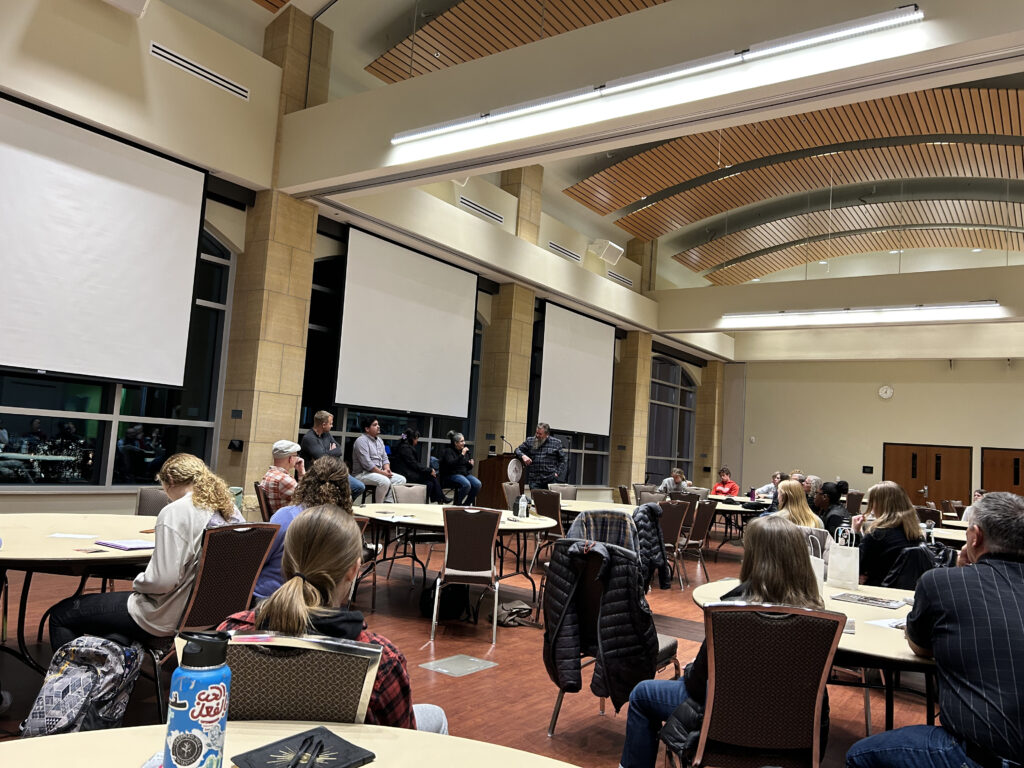It is no secret how politicized immigration is in America. A Northwestern professor, Dr. Jason Lief, hosted a documentary showing and panel discussion on the matter of immigration because he wants, “students at NW to recognize the complexity of the issue and to get the human face of the issue.”
The event was held on Nov. 9 in the Vogel Room on campus and had about 50 people in attendance. The documentary “Border of Dreams” was created by Bethel University students and faculty and directed by Nataly Basterrechea. The film follows two families attempting to cross the southern border into the United States.
Kurt Rietema, interviewed in the documentary and a guest on the panel, commented about how he “[hears] a lot about the politization of the southern border and most of it is coming from a U.S. perspective.” Rietema continues, “This film will help you understand the perspective of people that are on the other side—the stories that are not being told, the things that are not coming out. Listen to the stories of the people it is actually affecting.”
Another panelist was Yonathan Moya, the founder and executive director of an organization called “Border Perspective.” “We often only engage the immigration conversation from a political perspective, but there is a faith-based lens through the gospel to humanize the immigration conversation because really immigration is about people,” Moya said. “Students [must ask] the question of how do we humanize those we often politicize for the sake of loving our neighbor?”
The documentary showed the hardships that immigration brings, the misconceptions Americans believe about immigration and how most immigrants intend on immigrating to overcome suffering but end up losing their loved ones. “Why would I choose to go to the U.S.? I would choose to stay next to my children,” said a father of one of the families in the film.
A NW student who attended the event commented, “Their living conditions do not allow them to stay. The heartbeat of the gospel is to welcome immigrants into our homes and give them a shirt off our own back. Why do we choose to not love our neighbor?”
Another NW student, Julia Boller, is passionate about this issue and would encourage individuals to have this conversation with people who have or know someone who has closely experienced immigration. “People immigrate out of love and necessity,” Boller said. The half-hour long “Border of Dreams” documentary can be found online Dec. 15, and Boller would encourage NW students to watch it.
Rietema would encourage NW students to “advocate for processes that at least give them [immigrants] a fair chance to go before an immigration judge.” Rietema looked online during the panel discussion and explained how applications to go before an immigration judge that were submitted March 22, 1988, are just now being accepted. He highlighted how the processes for immigrants to attain legal status are broken and contrast the assumptions many Americans hold.
The panel encouraged attendees to advocate, pray, volunteer and remember that these people, immigrants, are not projects or burdens—they are our neighbors.
